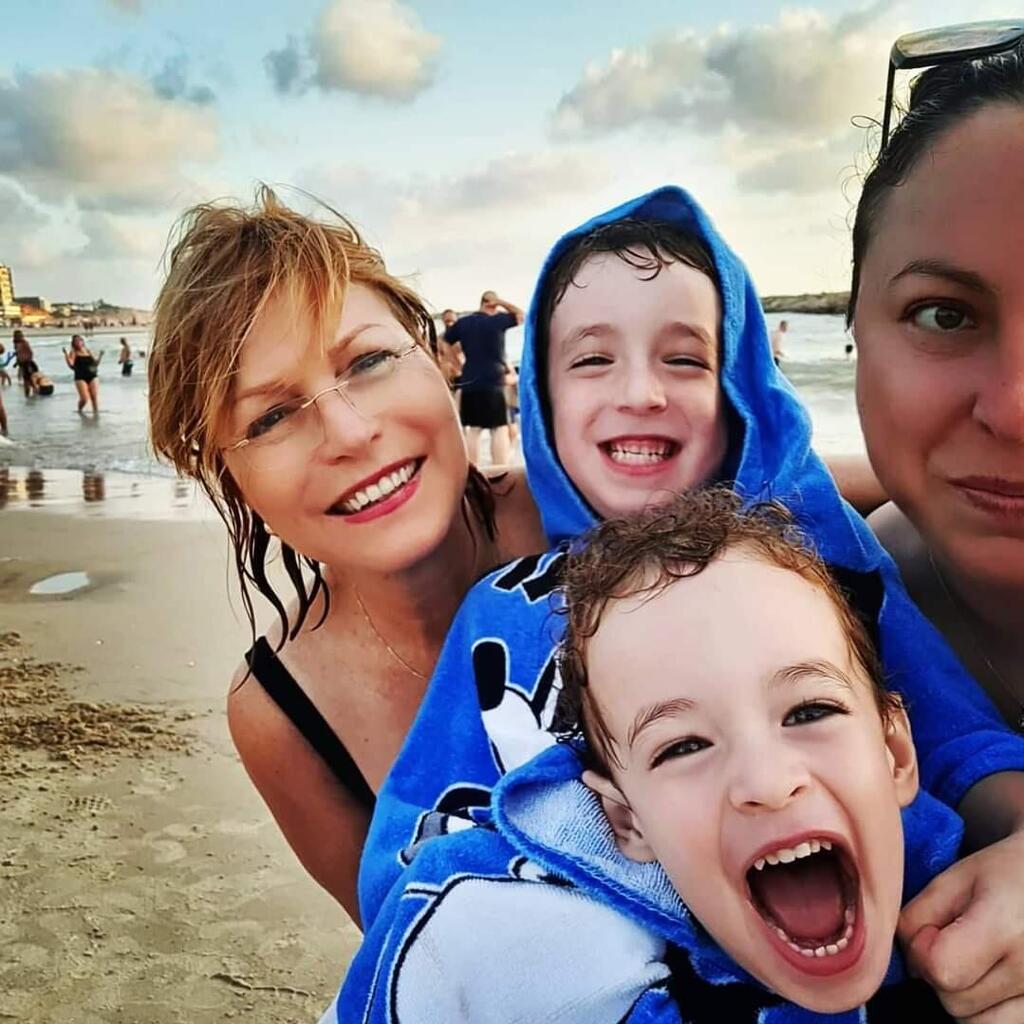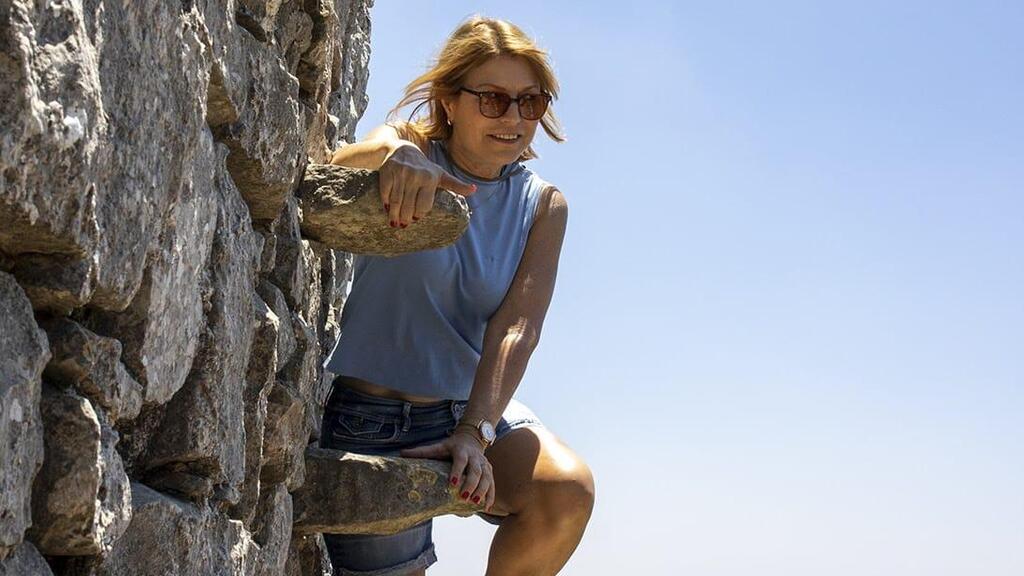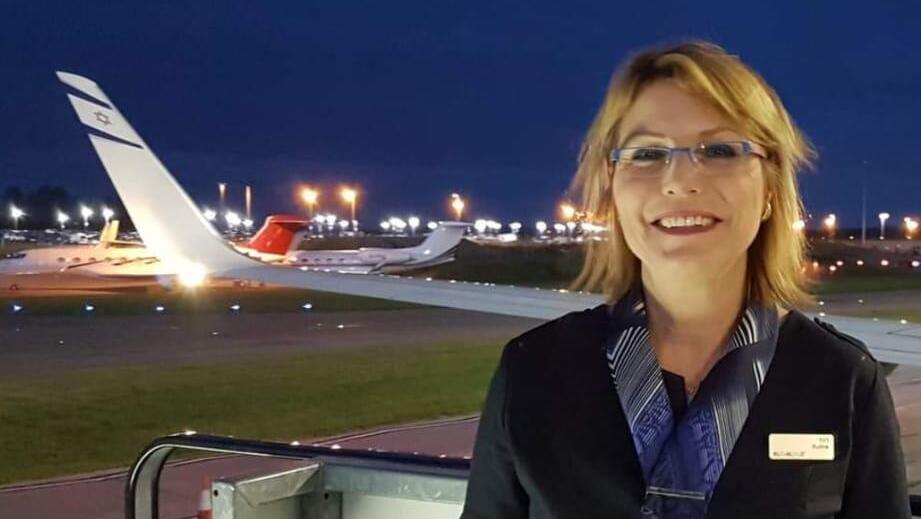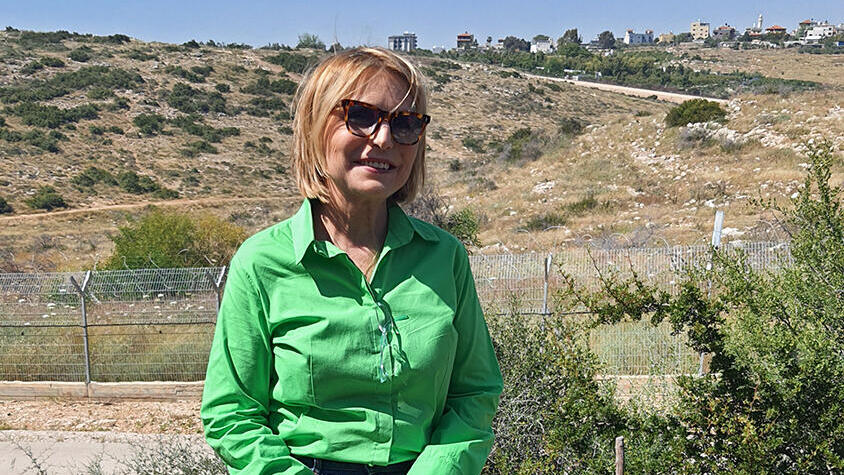Getting your Trinity Audio player ready...
While waiting for a kidney transplant after being diagnosed with a rare kidney disease, Ruti Rodney, 63, from Tzur Yitzhak in central Israel was informed that she had cancer, and was removed from the transplant waiting list, even though a suitable donor had been found for her. "If I had to give a title to this article, I would say 'Ruti wants to live.' I fight. I don't give up. My mother always says 'Rodneys get up and do' and that's what I do."
Other stories:
Rodney was born and raised in the Timorim cooperative settlement near Kiryat Gat in southern Israel.
"Fourth daughter to a pair of amazing parents, Holocaust survivors who treated life as a gift and us children as the most precious and significant thing in their lives that must be nurtured and loved," she says. "Mother, an impressive and strong woman who will celebrate her 94th birthday in July, was born in Germany and, after a terrible trauma she went through in the Holocaust, at the age of eight, moved to Britain. She was among the founders of the Enosh association in Israel, following my sister's mental illness. My mother wrote a book about her life, and despite everything she went through, guess what title she chose? 'Life is a gift.' After all, life is a gift.
"Father was a man with a lot of resourcefulness, incredible courage and confidence and knew seven languages. He escaped from the Germans at the age of 16 and rode a bicycle all the way from France to England. He met mother in Israel. We grew up on their love-at-first-sight story, it was a great love. Both of them. They were among the founders of Kibbutz Kfar HaNassi i in the north. Father died in the hospital in 1994," she says.
At the end of four years of military service in the undercover unit of the Tel Aviv Police, Rodney chose to study early childhood education and get a master's degree in special education "out of a desire to nurture the younger generation and give them skills and qualifications that will help them find the best way to grow up." She worked as a kindergarten director for 32 years and also cultivated hobbies such as folk dancing, trips in Israel and aroundthe world, Pilates and yoga.
Rodney started a family, giving birth to "three wonderful daughters" - Mor, director of the psychology department at an air force base, Ofri, a teacher and psychodrama therapist for special education children, and Bar, a mechanical engineer in the aerospace industry.
"Later, they strengthened the family with three wonderful grandchildren that I nurture with devotion and love, and they give me a lot of joy and shades of happiness," she says proudly.
The routine of her life was interrupted by difficult news.
"In 2015 I was diagnosed with a rare kidney disease, but the doctors always said it was mild and no one thought it would get this bad. But it got worse. In the middle of 2018, a year after we moved to Tzur Yitzhak - as a nature lover, I looked for the quiet in the forest next to the house, I began to feel pain all over my body and was very tired, until one day I simply could not get up out of bed – for a month. I lost ten kgs and in May I already realized that I was no longer going back to work, I had to retire from kindergarten to take care of myself. The separation from the children and the beloved parents was immediate, and to this day it pierces my heart that I couldn't wait until the end of the year," she says.
Despite the difficulty and uncertainty with the deterioration of her medical condition, Rodney tried to cultivate her hobbies, engage in sports to empower and strengthen her, and also volunteer to help others. For example, she joined the team accompanying trips for the blind and visually impaired, and even rode a bicycle with a group of those children on the trail.
"I was 58 years old and I decided to fulfill a dream that I had from a young age, and so I went to the flight attendant course at El Al. It's funny, what I did in kindergarten all these years I continued to do – only on the plane in the air. Working at El Al is for the soul. Great happiness," she said.
For two years, Rodney worked as a flight attendant, until her kidneys collapsed.
"It was August 2022. I was in Miami when my doctor called and informed me that I had to start dialysis treatments at the hospital. 'There is no choice,' he told me, and also informed me that I had to undergo surgery to insert a tube from which the dialysis treatments would be performed," Rodney recalls.
"I was in an amazing hotel 25 meters from the sea. In the mornings I used to wake up early and see the sunrise there rising from the sea. I didn't understand where this came from, and I still tried to maintain optimism. I told myself that I would do the treatments between flights around the world. Then I still didn't understand that the dialysis would be a move that would disrupt my routine, a life changer," she says.
'I wanted a life without compromise'
Upon her return to Israel and the start of dialysis treatments, the doctors informed Rodney that she urgently needed a kidney transplant so that she could continue to function.
"It was clear to me that I wanted a full life without compromises, but fate had other plans for me. For the first time I felt that I was not in control of everything. Suddenly the ground dropped out from under my feet. I wrote to my daughters that I was coming to them for the weekend and mentioned 'God willing'. My daughter wrote: 'What is this, where is my mother, who took her?'
"I am a completely secular person. I have faith in the universe, but I also believe that father is watching over me from above as are the members of our family who were murdered in Germany, and that Mom talks to them every night and asks them to watch over her children, grandchildren and great-grandchildren. I do feel that there is something that controls from above because here, the fact is, I did everything: I ate healthy, I was involved in sports all my life, how did I get to this situation? With dialysis, I am an exception in the landscape. There will always be someone who will ask, 'What are you doing here?' And the truth is, I don't know either, and I don't get this feeling of ambiguity. Cancer may or may not be cured, but kidneys remain, unless you undergo a transplant," she says.
'Take down the post, I will give you my kidney'
The "big bombshell", as she defines it, came about eight months ago, when Rodney was informed that she had myeloma cancer. "It was discovered by chance. I had a vertebra fracture in my spine, probably as a result of jolts from driving a jeep or a hard landing. I started a series of tests at Meir Hospital and then it was discovered," she explains.
"These were days of great excitement, with the peak of preparations for my youngest daughter's wedding. You can barely digest the dialysis and the transplant, and it lands on you like this," she says.
To treat the cancer and the kidney disease, the doctors informed Rodney that she would have to undergo both a bone marrow transplant and a kidney transplant.
"A bone marrow transplant is an aggressive chemical treatment. It was unimaginable for me to think that my body would go through all this when I'm 63 years old and also undergo a kidney transplant," Rodney says.
Today, she comes once a month for biological treatments at Meir Hospital in Kfar Saba and was removed from the transplant list until she recovers from the cancer. "They told me to wait a year or two, and if the myeloma shrinks, they will transplant me a kidney,"she says.
The kidney transplant has been put on hold, but there is already a willing donor, and even two.
"Usually I post to Facebook when I'm on the beach or skiing in France. The first time I posted a request for help was over a year ago. It was hard for me to share that I needed a kidney donation, but the result was heartwarming: the post was distributed like crazy with thousands of shares and those who knew me were simply shocked. They are used to seeing me dancing, on trips, at the beach, volunteering, when I am always happy and beautiful, and suddenly I have a serious illness.
"Following the post, many people went to be tested, including from El Al. One of them contacted me personally and wrote to me: 'Take down the post, I'm giving you my kidney,' but it did not match. Even with my family members and close friends there was no match, and it was amazing that other people came with a good heart and wanted to help," she says.
The donation came from an unexpected place, "a religious American family. A family that came to folk dancing with me. There was no connection between us beyond 'hello-hi' and, in fact, she called me and told me that the post moved her and her family very much. She said: 'I, my husband and our two sons made an appointment with a family doctor. We want to donate a kidney to you.'"
Only the husband was found suitable for donation. "It took him a whole year to do the tests and it was tedious. After we informed him about the postponement of the transplant, he went to the Rabbi (Yaakov) Haber (altruistic kidney donation) association and said he was ready to donate to another patient," Rodney says.
At the same time, another suitable donor was found.
"Until I finally have the upper hand against the cancer, I find myself in a state of ambiguity with the bone marrow transplant and it's not clear how the whole story will end. It just taught me that nothing is over until it's over. Even when you have two donors willing to give you their kidney," she says.
And what in the meantime?
"I'm not the same Ruti anymore. I trust myself less, my confidence has decreased a bit, I'm more tired. Today I understand that not everything depends on me, I developed a fear of infections and strokes because it's dangerous and directly affects the heart. On the other hand, I learned to listen to my body, stop and rest when I need to. And in the midst of all this, try to maintain a routine, even though it's no longer the same. I won't be able to go back to work as a flight attendant. I loved traveling the world, I loved going to destinations that I doubt I would have reached on my own, such as China, India, Dubai and Boston. So, I have moments of breakdown, but I have family and friends I can count on. They lift me up."
5 View gallery
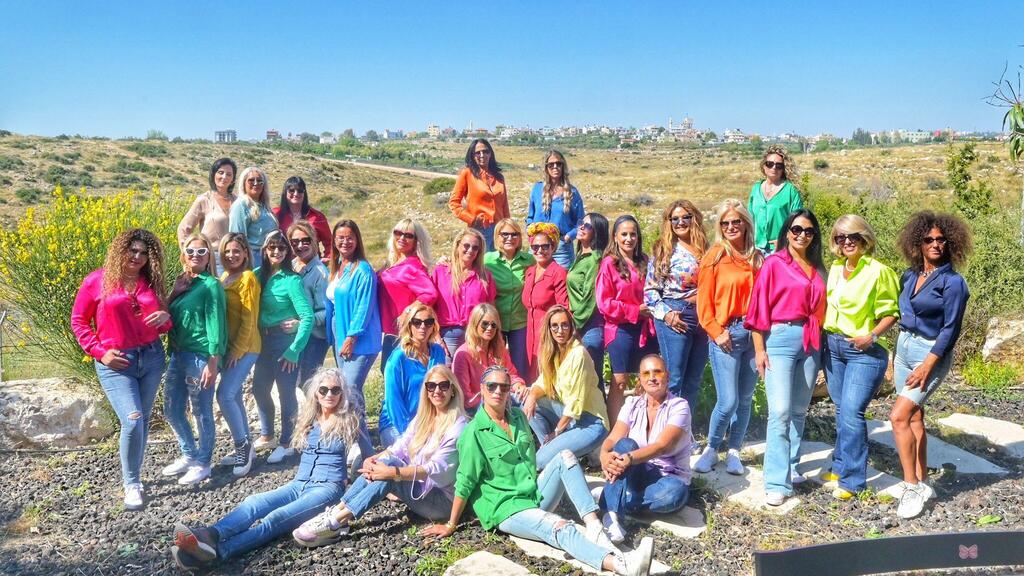

Ruti Rodney in 'Savtush - the most beautiful grandmother in Israel competition'
(Photo: Uri Crispin)
"The 'Surf Sister' group on the Herzliya beach makes me very happy. Since the dialysis I haven't been surfing, but I've learned to relax sitting on a beach chair with a good book in front of the waves, watching the girls surf and I feel like I too have been on the surf for four hours.
"I am also happy that 40 years after my mother was chosen to be the Most Beautiful Israeli for the year 1983 by L'Isha Weekly, for her work for humanity, I am participating in a competition initiated and produced by the photographer Uri Crispin: 'Savtush - the most beautiful grandmother in Israel competition.' It gives me interesting things to do, every week there is something to look forward to and along the way I met lovely women. The competition will be held on May 30, and until then I'm having fun."
Ruti asked to be interviewed in order to raise awareness of organ donation.
"It is important to me that people know how difficult life is for dialysis patients and donate wholeheartedly. I heard a beautiful sentence from one of the religious donors: 'We received two kidneys, one for our use and the other to give to someone else,'" she says.
"It's important that people sign an Adi (organ donor) card . When my father was in the hospital, before he died, the first sentence that my mother said to the staff was: 'We both signed an organ donation card.' They were shocked. They're not used to the family coming, especially when their loved one is alive, and talking about organ donation. This is my mother. She is the most positive and optimistic person in the world. Everyone needs a mother like that. My mother always says that what is important is quality of life and not length of life, and that is what I ask for myself. To live a good quality of life and continue to do what I love."


